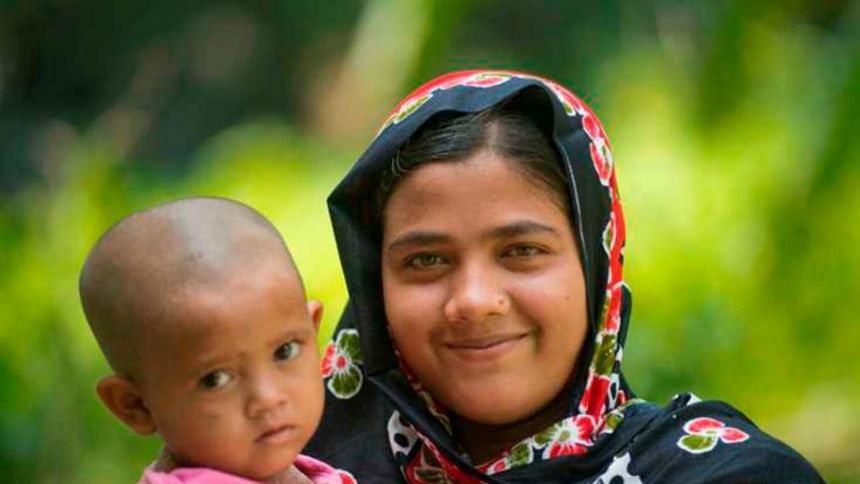Safe Motherhood Day: Unite for women’s rights for respectful care

On May 28, Bangladesh is celebrating yet another Safe Motherhood Day. It is time we promoted safe motherhood as an initiative to advance women's basic human rights, and not just to reduce morbidity and mortality. The Article 25 of the Universal Declaration of Human Rights recognises that everyone has the right to a standard of living adequate for the health and well-being of himself and of his family, including food, clothing, housing and medical care and necessary social services. Further, it states that motherhood and childhood are entitled to special care and assistance. Drawing from this, and other international treaties and covenants, the White Ribbon Alliance in 2011 launched a charter for the rights of childbearing women to promote respectful maternity care as a universal human right. Bangladesh is one of the countries that have ratified the international conventions on which the charter is based.
Ensuring that women everywhere have access to essential and life-saving health services is one of the most essential steps towards this. Over the last 15 years, Bangladesh has witnessed a steady increase in the utilisation of health care facilities by women, particularly for care related to pregnancy and delivery. More than half of women now go to a health facility for their deliveries, mostly to private hospitals and nursing homes. Yet, a significant proportion of women are still unable to reach a health facility that offers affordable and quality health care.
Women in remote and hard-to-reach areas remain under-served for all their health care needs. The high cost and poor quality of health services available in urban areas makes it inadequate even for women residing in many urban areas. As a member-state that has recognised the international treaties and covenants that uphold health as a human right, Bangladesh must enhance its efforts to reach those who are left behind.
Along with access, ensuring that the women go through a positive experience while seeking care is also very critical. Women's experiences with healthcare during pregnancy and childbirth can make or break their confidence in the health facilities. A positive experience will boost their self-esteem while a negative experience will generate fear and apprehensions about care-seeking in future for themselves, their families and peers.
Most healthcare providers tend to focus more on the clinical aspects of care than the ways in which services are provided and the women's experience of receiving care. There is an urgent need to bring in a change in the healthcare environment in the country for better care experience. Respect for the woman and her child's dignity, including informed decision-making, should be at the centre of all healthcare services. Respecting the woman's right to ask questions and seek all information she needs to make informed decisions is key. She should be able to make her choices and preferences about the care she wants, be it for giving or refusing consent for clinical procedures, having a companion during maternity care or for opting to have a normal delivery.
In many over-crowded and under-staffed hospitals, ensuring adequate privacy for women seeking health care can be challenging. The absence of privacy and the unavailability of female providers can be a serious deterrent for many women from visiting a hospital. Women have the right to be treated with dignity and respect and be free from harm and ill-treatment. Often, women seeking care have long hours of waiting without access to food or water. Health services must be available to all women without any discrimination based on economic status, marital status, religion, ethnicity, language or any other factors.
Even though instances of physical, sexual and emotional abuse in health facilities may not be very common in Bangladesh, non-consented care and neglect are not uncommon and are equally disrespectful. Health facilities can do a lot better to stop violations of privacy, refusal of admission to health facilities, neglect during childbirth which may lead to life-threatening and avoidable complications, and delayed referral. Irrational use of clinical procedures and investigations, such as caesarean section deliveries, is another critical area requiring attention of the professional associations and regulatory authorities.
Let us make this Safe Motherhood Day a landmark in the way we treat our women, by starting a movement to help our women realise their rights for respectful and compassionate care. Let this be a milestone for the health care providers in the country to pledge their commitment to uphold the women's fundamental human rights.
Joby George is currently working as the Chief of Party of MaMoni MNCSP project, Save the Children.

 For all latest news, follow The Daily Star's Google News channel.
For all latest news, follow The Daily Star's Google News channel. 



Comments